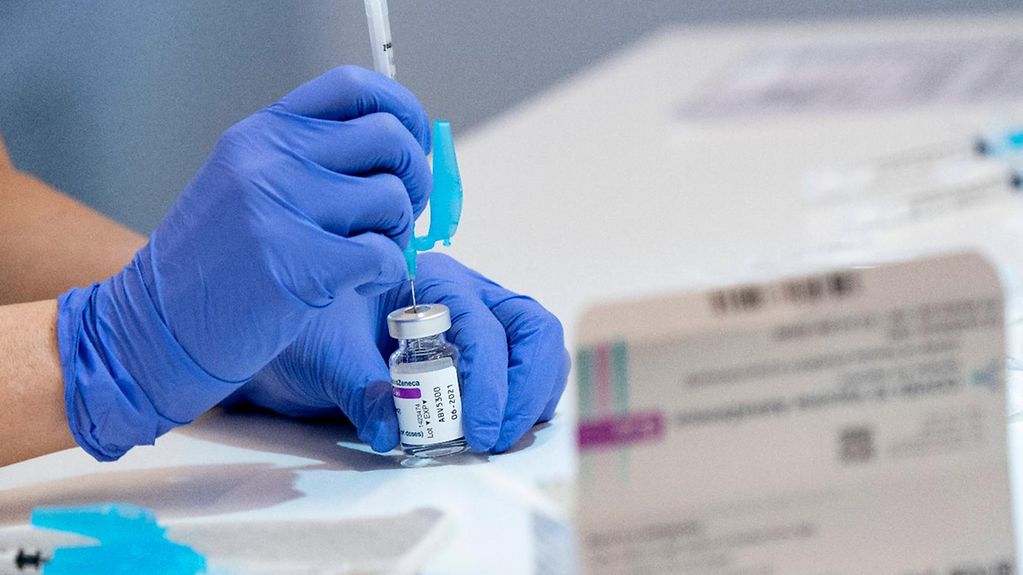COVID-19 vaccinations
Vaccinations with the AstraZeneca vaccine are to be continued on Friday, announced Federal Minister of Health Jens Spahn. Earlier in the day, the European Medicines Agency had confirmed its previous assessment, and reaffirmed that the vaccine is safe and effective.
2 min reading time

Both the first vaccination and the follow-up shots will be affected by the decision to suspend the use of the AstraZeneca vaccine.
Photo: imago images/TT/Johan Nilsson
The aim is to “resume vaccinations using the AstraZeneca vaccine” in the course of Friday, stressed Federal Minister of Health Jens Spahn at a press conference on Thursday evening. The Federal and Länder Governments had agreed on this procedure, he announced. The Paul Ehrlich Institute, which is responsible for vaccines, supports the step.
After several cases of rare cerebral vein thrombosis were reported, the European Medicines Agency (EMA) recommended that vaccinations with the vaccine continue, but that there should be a heightened awareness of possible risks. “It was right to temporarily suspend vaccinations with the AstraZeneca vaccine until the relevant number of this very rare form of thrombosis had been analysed,” said Jens Spahn. “Doctors must have this information so they can explain to patients who come to be vaccinated.” The information sheet for doctors and patients are to be updated accordingly.
EMA confirms that vaccine is safe and effective
On Thursday, the EMA confirmed its previous assessment. The AstraZeneca vaccine is still safe and effective in preventing COVID-19, said the EMA. The benefits of vaccination far outweigh possible risks. The studies to date do not provide evidence of any causal link with the vaccine, but this is not impossible.
PEI President says the number of cases is very low
Klaus Cichutek, President of the Paul Ehrlich Institute, explained that, among women under the age of 55, a higher number of cases than would normally have been expected of blood clots associated with thrombocytopenia, some of them fatal, had been reported in temporal proximity to the vaccination. In absolute terms, however, we are talking about a very small number of cases, he said, and added, “It is not clear that there is a causal link with the vaccine.”
Doctors are to watch for signs of any cerebral vein thrombosis and are to alert patients to this, stressed Klaus Cichutek. People who have had the vaccine should seek immediate medical attention if they experience the following symptoms 4 – 16 days after receiving the vaccine, once the normal reaction to the vaccine has passed: breathlessness, pain in the chest or stomach, swelling or coldness in an arm or leg, severe or worsening headache, multiple small bruises, reddish or purplish spots or blood blisters under the skin.
On Monday Germany and other European countries temporarily suspended the use of the AstraZeneca vaccine as a precautionary measure. The German government acted on the recommendation of the Paul Ehrlich Institute, against the background of newly reported cases of cerebral vein thrombosis in temporal proximity to the vaccination.